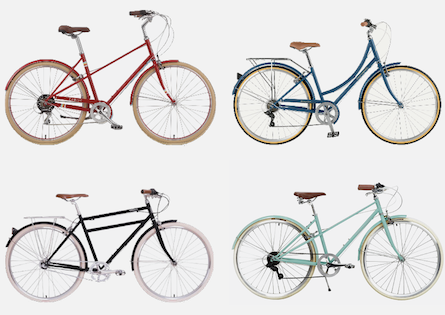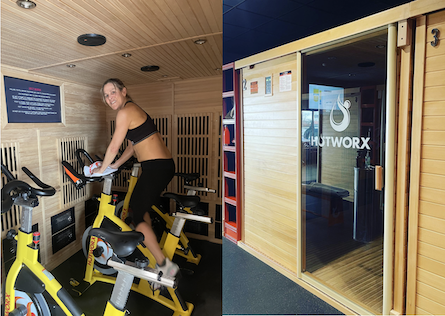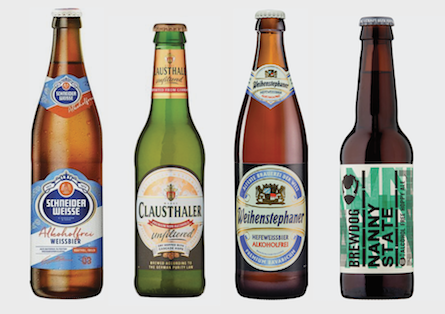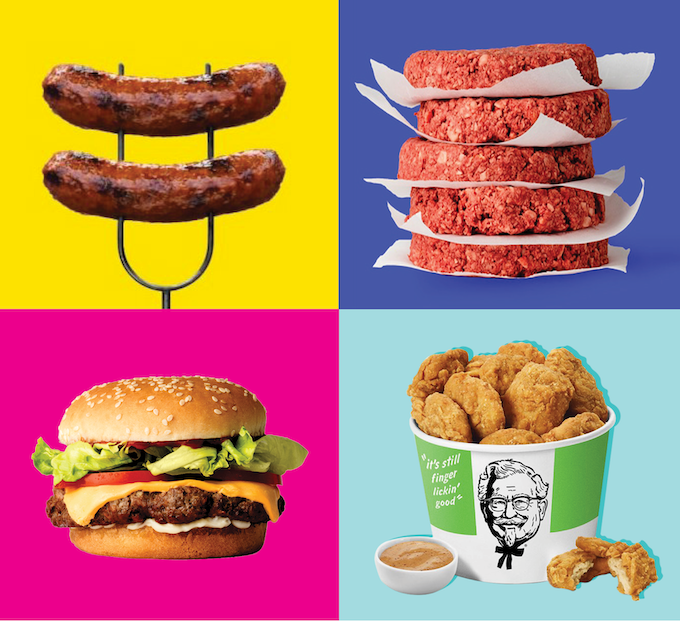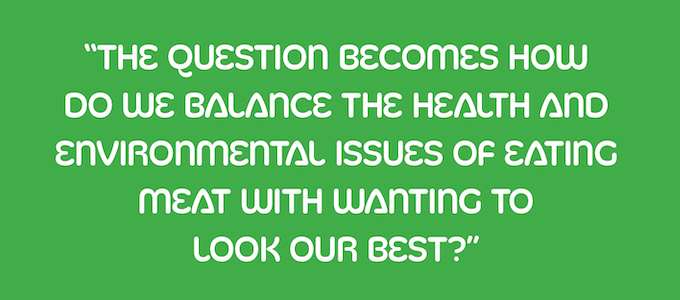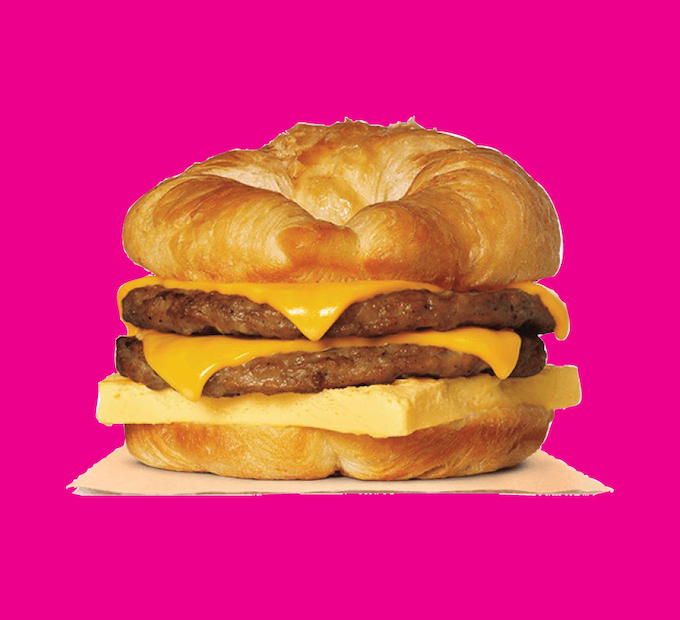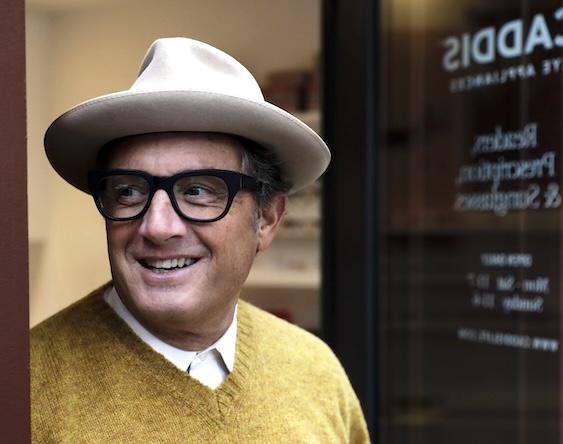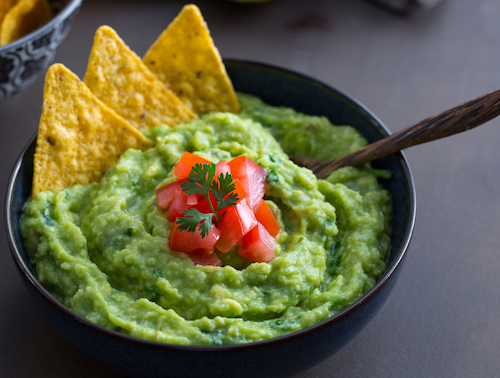NO ANIMALS WERE HARMED IN THE MAKING OF THIS FAST FOOD
I’ve got friends and family who have been vegan for years. The easiest way to understand vegan, one of them told me, is you don’t eat anything with a face. So in addition to the obvious meat, fish, and chicken — that means no dairy, eggs, and any other products that contain them. Veggie burgers, Tofurky, and soy cheese have been the basic go-to substitutions, available in a limited selection, and tailored primarily to a vegan taste palate. But all that has changed…
Go into any coffee shop or supermarket nowadays and you find menus and aisles of plant-based milks like almond, coconut, and oat — and freezer sections filled with delicious plant-based meat alternatives like Beyond Meat and Impossible Burger. Designed to taste and smell exactly like a hamburger, and engineered with the multi-faceted texture of one — these new savory “veggie” burgers are featured prominently on the menu at major fast food chains like Burger King and McDonalds – along with Beyond Sausage sandwiches at Dunkin’ Donuts and Beyond Fried Chicken at KFC. Plant-based eating has gone mainstream — and Hollywood. It was a veggies only dinner last Sunday at the Golden Globes Awards.
A recent article in the New Yorker quoted some powerful statistics on the environmental impact of eating meat. In a nutshell, agriculture consumes more freshwater than any other human activity, and nearly one-third of that water is devoted to raising livestock. One-third of the world’s arable land is used to grow feed for livestock, and cattle are responsible for 14.5 percent of global greenhouse gas emissions from the methane they produce in digestion. That’s as much each year as from all cars, trucks, airplanes, and ships combined! (NYT)
Recent documentaries like What the Health and The Game Changers provide an inside and frightening look at why beef, chicken, and fish are so toxic — from the hormones and carcinogens they are fed, to the unsanitary and inhumane environment in which these animals are raised and slaughtered.
The Game Changers goes further, with a look at how some of the most well-known professional athletes like many of the Tennessee Titans, ultramarathoner Scott Jurek, and even Arnold Schwarzenegger have switched to a plant-based diet — not just for health reasons, but for sport performance enhancement. Demonstrated in the film is the dramatic difference in how much more blood is pumped and fuel delivered to our muscles – the basics when it comes to strength and endurance – after eating a plant-based bean burrito as compared to one with meat.
So given all of these overwhelming facts, why are so many of us still eating animal products — myself included? My diet is primarily plant-based, but I’ll admit for my own vanity I still have animal protein in my diet because I’m leaner when I do. I did an experiment a few weeks ago eating only plant-based for 5 days. I ended up feeling bloated and wondering why my jeans were tight. What works best for me, and a bunch of other people as well, is something in between — where you limit your consumption of meat but don’t cut it out entirely.
With so much buzz about plant-based eating, I thought it a perfect topic to kick off 2020 with our contributing nutrition editor Sarah Wragge — to get her thoughts and expertise on this trend, whether we’ve got to go all or nothing, or find a happy medium in between?
STYLE OF SPORT: The health and environmental facts about why we should be eating a plant-based diet are staggering, but they’re not new. Why do you think plant-based eating is suddenly so popular now? Why has it gone mainstream?
SARAH WRAGGE: I think it’s gone mainstream because for the first time people are starting to connect the dots between diet and illness. There are so many more diagnoses of cancer and other diseases, and we are realizing that all the additives in our foods, and the hormones animals are fed, might actually be affecting our health. The world is filled with baby boomers and their parents who weren’t raised with all these hormones and pesticides. My grandmother died at 97 still eating Wonder Bread, thinking it was the same Wonder Bread she first started eating in 1950s. It’s not. Now it’s loaded with glycosophate and other pesticides and toxins to make the crops grow faster and increase production.
SOS: So you eat meat, right? Unless you raised and killed it yourself, are you concerned whether the meat you eat is hormone-free, grass-fed, and all those other factors? Are you mindful of that?
SW: We cook at home a lot so I can control where we’re getting our meat from. I do research. I will order from Freshdirect that partners with local farms. I have sources from a couple of my hippy dippy clients in Montecito who order meat from places where they know the animals are killed humanely and not treated with hormones. When I’m cooking at home, and getting the products from the butcher, I’m doing the best I can with the information I have.
SOS: What about eating out?
SW: When you’re ordering from places like Friend of a Farmer and other farm-to-table restaurants, you feel confident, but you don’t really know 100%. When I go out to dinner and order a piece of wild fish or the grass-fed steak, I’m essentially turning a blind eye and hoping for the best. It’s easier than being completely neurotic. I’ve gone down the rabbit hole. I was a hard-core vegan for 3 months and at the end of the day it doesn’t work for me personally.
SOS: I agree with you on that. I tried for it 5 days. I know that’s not very long, but I did it as an experiment, and I didn’t feel good. Partially it’s because I’ve changed my diet over the last few months so that I rarely have grains or carbohydrates from anything other than vegetables and a little bit of fruit. I eat fish, chicken, eggs, and occasionally steak for protein. My body has gotten leaner and shows how hard I train.
SW: I agree. My body looks and feels best with some meat in my diet.
SOS: The question I always ask plant-based eaters is where they get their protein. Inevitably I get this eye-rolling OMG reaction, but all the sources of protein they rattle off are loaded with carbohydrates like lentils, amaranth, black beans, and quinoa. I like those foods sporadically and in moderation, but as the bulk of my diet – forget it. For me they’re very bloating and fattening. I am looking for a plant-based answer that works with the Paleo or Keto diets so many of us have adopted as athletes to train our bodies to use our fat instead of carbohydrates for fuel. And I can’t just eat nuts and avocado all day as the solution.
SW: I’m totally with you. I’d rather just eat 2 hard boiled eggs and call it a day, than a big pea protein smoothie with 500 calories. I wasn’t cut when I was plant based, and if I’m training hard I want it to show. Black beans and quinoa – good luck not blowing up! It’s a recipe for weight gain for many of us.
SOS: I think people that are lean on plant-based diets are naturally skinny – or maybe not as vain as you and me… lol! I’ve got a friend who’s been vegan for 20 years. He’s a surfer and ripped, but I’ve gone out to dinner with him and seen the rice balls he eats as a main course and that would never work for me. The movie The Game Changers really does make the argument for plant-based eating from a sports performance perspective, but it’s mostly guys that are featured. Many of the Tennessee Titans are on plant-based diets, but they’re football players! You see these pre-game carb-fests, and it’s totally different for you and me. They want to bulk up. We don’t. So the question becomes how do we balance the health and environmental issues of eating meat with wanting to look our best?
SW: I think that listening to our bodies is important. And I go through phases where I’m like no more chicken. I’ll feel like my digestion is not as good and it’s time to clean house a little bit. I’ll do two days of plants, and then I’ll jump back. I think a good practice is to maybe have animal protein once a day. If I’m going to have a big omelet in the morning, that will sustain me protein-wise, and then maybe at lunch I’m having a big salad or sautéed greens with lentils. I’m not talking about 2 cups of lentils, but 1/2 cup with some sautéed spinach. Maybe I’m putting cashews or macadamias on the sautéed spinach. It’s all about balance.
SOS: That is what I’ve been trying to do, and I’m happy to say that’s a real diet: it’s called Flexitarian and comes down to moderation. We’re still getting many of the health benefits, and helping to counteract the environmental impact of eating meat, but without the all or nothing approach. I also think a lot of these plant-based alternatives aren’t that healthy.
SW: The Impossible Burger is full of soy, and Beyond Burger is highly processed plant protein. Soy is higher in phytoestrogens than just about any other food source, and these plant-based estrogens disrupt endocrine function in our bodies. They can cause hyperthyroidism and increase the risk of breast cancer. Most soy in America is genetically modified and treated with all sorts of pesticides and herbicides. It’s really no better than eating meat!
SOS: When I read the The New Yorker piece about the Impossible Burger I found it terrifying how these plant-based foods have been genetically engineered in a laboratory with these “hemes” that have the sensation of the fat as you chew it. But what I find fascinating is how these Impossible Burgers have ended up at Burger King and White Castle. It seems to me the person who is eating fast food is not health conscious enough to want a plant-based burger.
IMPOSSIBLE CROISSAN’WICH
SW: They’ve made these burgers really taste like meat so that you can’t tell the difference. There are different levels of vegan and vegetarian. There is the elevated consumer who is reading The New Yorker and the other who’s going to Burger King. The fast food burgers are catering to that mainstream consumer.
SOS: I think they’re opening up the menu to attract a new fast food consumer too, and one for whom there might not have previously been options on the menu. By partnering with these buzzy brands like Impossible Foods and Beyond Meats, they are making the plant-based option more trendy and appealing.
SW: I actually went to Burger King and tried one and I have to tell you it tasted phenomenal, but it messed up my digestion in ways I won’t describe in detail!
SOS: I can imagine! But I’m curious if the marketing of these new plant-based options is actually swaying that meat-eating customer to choose the Impossible Whopper over the regular Whopper at Burger King, or the Beyond Sausage sandwich at Dunkin Donuts. Is the person who eats fast food regularly starting to connect those dots as well between the foods they are consuming and disease?
SW: I do think that all the plant-based options the typical fast food customer is starting to see at their favorite restaurants is helping them take a step forward with their health. The Impossible Burger is empowering people to make a better choice because they’re not sacrificing taste.
SOS: You have recently introduced a clean plant-based eating cleanse. Tell us about Refresh 5.
SW: Refresh 5 is part of a larger platform, The Refresh Society. It’s a real life nutrition and wellness program. The goal is to give everyone the opportunity to hit the refresh button at an accessible price point. It’s a 5-day plant-based program designed to be a detox than can introduce you to a lifestyle shift.
SOS: It’s like being on a juice cleanse but with food?
SW: Right. We’re not trying to get people off meat necessarily, but it’s perfect reset cleanse. However, I have had people leave this and stay plant-based. I think whether you decide to go plant-based 100% or weave it into daily life, it’s important to be intuitive with your body — listen to what it needs and when it needs it. It’s not always black or white.
SOS: I think given the plant-based eating trend people have to be careful about labels. Just like the sugar, fat, and gluten-free trends we’ve seen come and go, just because a food is marketed as “plant-based”, doesn’t mean it’s necessarily healthy if it’s loaded with other stuff.
SW: If you’re reading a label and there are ingredients you never heard of or don’t understand then kick it to the curb.
SOS: I think as usual with diet, moderation and common sense prevail. Thanks Sarah!
For more nutrition discussions with Sarah and I read…
CHANGE YOUR MIND, CHANGE YOUR BODY
